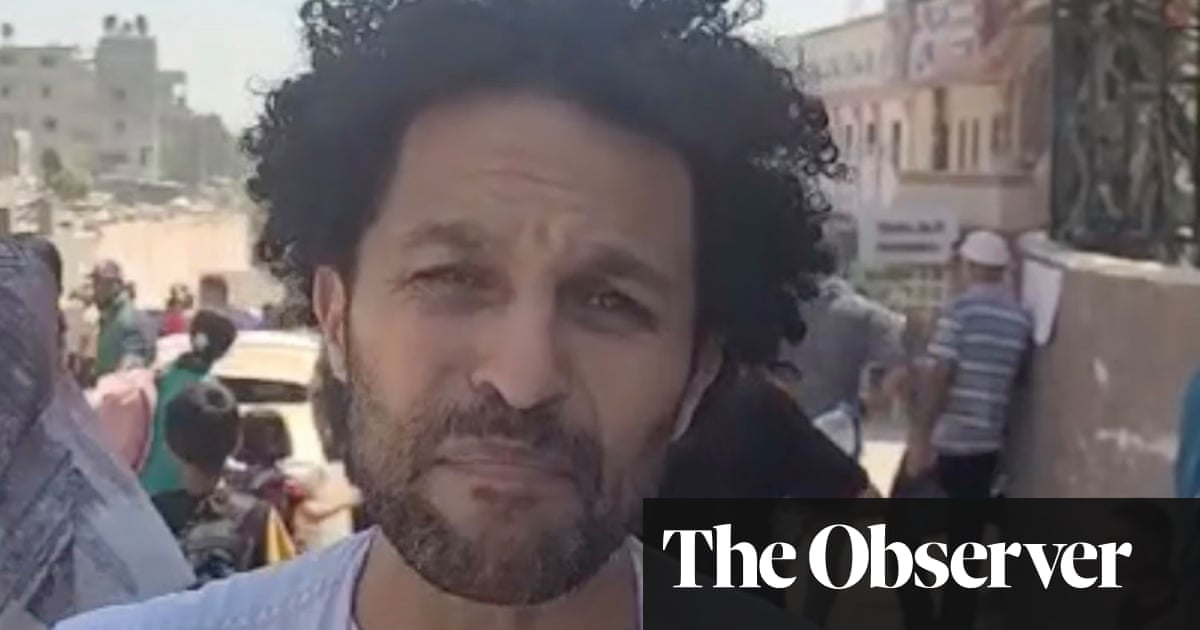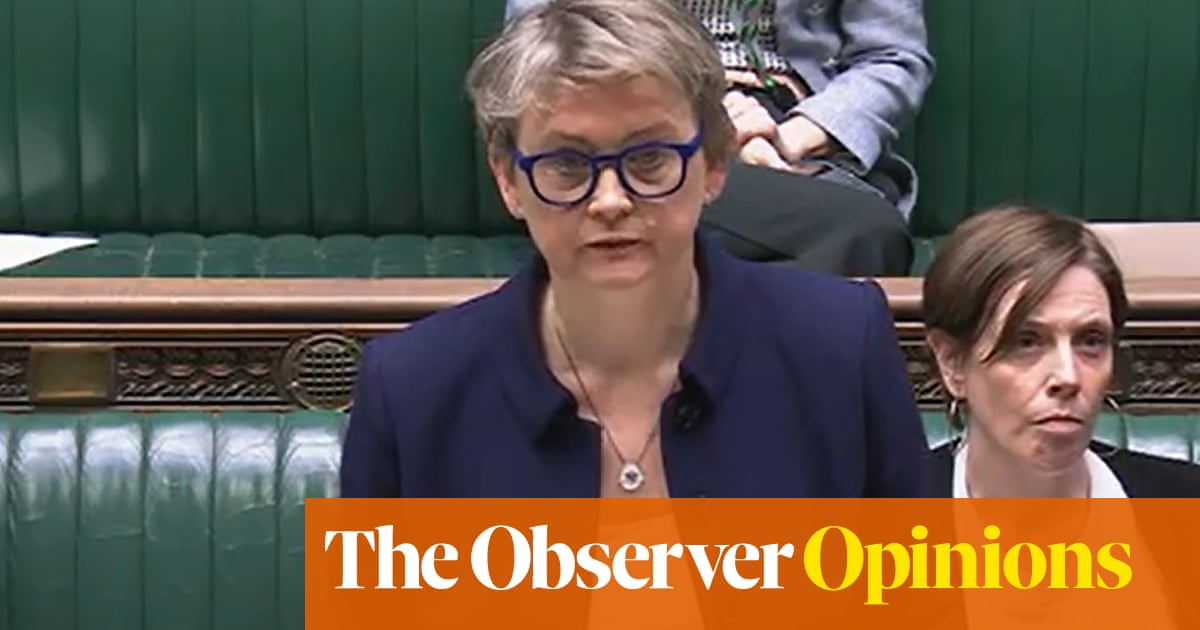Key events Show key events only Please turn on JavaScript to use this feature
UK would like to facilitate return of refugees to Syria, says minister
The Home Office would like to facilitate the return of refugees to Syria, a minister has said, saying about 6,500 asylum claims had been suspended as the government waited to assess the fallout from the end of the Assad regime. As Jessica Elgot reports, the immigration minister Angela Eagle said many refugees had been fleeing from the persecution and torture inflicted by Bashar al-Assad’s regime and said that if people wished to return to Syria from the UK “we’d certainly like to facilitate that”. Jess’s full story is here.
Starmer tells the troops in Cyprus that he feels it is important to say thank you in person.
And he says that the troops based on the island cannot always talk about the work that they do. But he says the government knows that value of what they do. It is keeping the country, and the world, safe, he says.
Starmer thanks British troops for their service during visit to base in Cyprus
Keir Starmer is address British troops at the RAF Akrotiri base in Cyprus.
He starts by saying is there to say thank you. And he says there are many people in the UK who would also like to be saying thank you to them. They can’t be here, he says. But he says he is conveying that message on their behalf.
He says members of the armed forces serve year in, year out. But this year it has been particularly intense, he says. He refers to work related to Gaza, and to the evacuation plan getting Britons out of Lebanon.
He says the plans changed, but he was confirmed that he could rely on the military in any circumstances. He had “complete faith” in them, he says. And that meant he could go into meetings with other leaders with complete confidence that the UK could deliver.

Stop using money on non-priority areas, Reeves tells ministers, as she launches spending review
Good morning. Today is the launch of the spending review. And the prime minister has been writing about the process.
Every secretary of state inherits dozens of projects and priorities from his or her predecessor, and a huge quantity of government activity is therefore being carried out even if it is no longer necessary or relevant. In one of my very first cabinets, I told them all to go through their budget lines and cut at least 5%. ‘It’s time to slaughter the sacred cows,’ I said.
But that was not the current prime minister. That was Boris Johnson, in his memoirs.
As Heather Stewart, Kalyeena Makortoff and Richard Partington in their overnight story, Rachel Reeves, the chancellor, is also asking cabinet ministers to find efficiency savings equivalent to 5% of spending. That does not mean that her policy on public spending is exactly the same as Johnson’s. But this does illustrate how this is a process that most governments end up going through.
Efficiency savings of 5% does not have to mean spending cuts worth 5%. Reeves has already announced that overall day-to-day government spending is due to rise by 1.5% a year in real terms. Efficiency savings (which often feel like cuts) in one area of departmental spending can free up money that can be spent in other areas.
But that does not mean the process will be painless. In its news release, the Treasury says ministers are being told the spending not contributing to a government priority should be stopped.
Secretaries of state across government will need to allocate their budgets to ensure that government spending is focused on the prime minister’s Plan for Change, and that every pound of taxpayers’ money is spent well. The chancellor will work with departments to prioritise spending that supports the milestones to deliver the plan …
In letters sent by the chief secretary to the Treasury, departments will be advised that where spending is not contributing to a priority, it should be stopped. Although some of these decisions will be difficult, the chancellor is clear that the public must have trust in the government that it is rooting out waste and that their taxes are being spent on their priorities.
The Treasury also gives an example of what this might mean.
Work has already begun on evaluating poor value for money spend, with an evaluation into the £6.5m spent on Social Workers in Schools programme, which placed social workers in schools, finding no evidence of positive impact on social care outcomes, meaning the intervention was not considered cost-effective. The government has made clear it will not shy away from taking the difficult decisions needed to fix the foundations, as shown by the chancellor’s decisions at the budget to balance the books.
The Social Workers in Schools progamme was an initiative started under a previous PM – one Boris Johnson. As he would put it, it’s now being slaughtered as a sacred cow.
Reeves is speaking at an event at a hospital this morning, so we will hear more from her soon. And we will hear more about the Plan for Change, because Pat McFadden, the Cabinet Office minister who oversees the plan, is giving evidence to committee later. It is one of several interesting hearings on the committee corridor.
Here is the agenda for the day.
Morning: Keir Starmer is in Cyprus, where he has a meeting with Nikos Christodoulides, the president, and addressing British troops at RAF Akrotiri.
Morning: Rachel Reeves, the chancellor, and Darren Jones, chief secretary to the Treasury, are visiting a hospital in Kent.
11.30am: Downing Street holds a lobby briefing.
12.30pm: MLAs (member of the legislative assembly in Northern Ireland) start a debate on whether or not to continue with the Windsor Framework post-Brexit trading rules.
1pm: Lisa Nandy, the culture secretary, gives evidence to the Commons culture committee about the work of her department.
2.30pm: Douglas Alexander, a trade minister, Stephen Doughty, a Foreign Office minister, and Lord Coaker, a defence minister, give evidence to the business committee about arms sales to Israel.
2.30pm: Chief constables from South Yorkshire police, Cleveland police, Staffordshire police and Humberside police give evidence to the home affairs committee about the summer riots.
3pm: Pat McFadden, the Cabinet Office minister, gives evidence to the public administration and constitutional affairs committee about the work of the Cabinet Office.
If you want to contact me, please post a message below the line or message me on social media. I can’t read all the messages BTL, but if you put “Andrew” in a message aimed at me, I am more likely to see it because I search for posts containing that word.
If you want to flag something up urgently, it is best to use social media. You can reach me on Bluesky at @andrewsparrowgdn. The Guardian has given up posting from its official accounts on X but individual Guardian journalists are there, I have still have my account, and if you message me there at @AndrewSparrow, I will see it and respond if necessary.
I find it very helpful when readers point out mistakes, even minor typos. No error is too small to correct. And I find your questions very interesting too. I can’t promise to reply to them all, but I will try to reply to as many as I can, either BTL or sometimes in the blog.

.png) 1 month ago
12
1 month ago
12













































